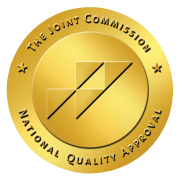9 Mental Health New Year’s Resolutions
The new year can sometimes be difficult for people experiencing depression, anxiety, or other mental health issues. There are plenty of potential reasons why the new year might trigger disorders or even more severe episodes, such as manic bipolar episodes. Before we get into the mental health New Year’s Resolutions, here are some common reasons you might be struggling.
- Expectations: The new year is often associated with high expectations and the pressure to make resolutions and achieve goals. This can be overwhelming and may even lead to feelings of failure or disappointment.
- Loneliness: The holiday season can be a time of increased social activity, but once the holiday season is over, people may feel lonely and isolated.
- Financial stress: The holiday season can be financially stressful, and the start of the new year may bring financial concerns such as credit card bills and budgeting.
- Cold weather: The winter months can be tough for some people due to the colder weather, shorter days, and lack of sunlight, which can contribute to feelings of sadness and depression.
- Relationship strain: Holidays could mean family gatherings (or friends). With all the above things in mind, these gatherings have the potential to be relationship napalm. This can mean you are starting the new year on shaky psychological ground.
- Substance abuse: Holidays are often when we let loose a little and use drugs or alcohol to higher levels. This alone can present problems, but if it means a relapse for a person with a substance use disorder, the aftermath will be broad.
9 Mental Health New Year’s Resolutions
The first thing to remember is to set realistic goals. Whatever you decide to concentrate on for your mental health new year’s resolutions, make them achievable and specific. This will help you stay motivated and avoid disappointment or failure. Here are 9 resolutions to consider and decide what works for you.
1. Stay Positive
Focusing on the positive things in your life can help to improve your mood and overall well-being. Make a list of things you’re grateful for, and incorporate more positive thinking into your daily routine.
2. Reflect
The new year is a great time to reflect on the past year and to think about what you’d like to focus on moving forward. Take time to journal or meditate on your goals and priorities for the new year.
3. Practice Mindfulness
Mindfulness is not about clearing your mind of all thoughts or reaching a state of enlightenment. It is about developing a new relationship with your thoughts and emotions, observing them rather than getting caught up in them. This can involve setting aside time each day to focus on your breath, thoughts, and feelings.
4. Practice Self-care
Taking care of yourself is vital for your overall well-being. Make sure to prioritize activities that nourish your mind, body, and spirit, such as getting enough sleep, eating a healthy diet, and engaging in activities that bring you joy.
5. Set Boundaries
Learn to say “no” when you need to and prioritize your well-being.
6. Practice Gratitude
Make a conscious effort to focus on the things you are grateful for in your life.
7. Connect With Others
Make an effort to spend time with friends and loved ones, and consider joining a support group or club.
8. Seek Out New Experiences
Stepping outside of your comfort zone can help boost your mood and confidence.
9. Seek Support
If you’re struggling with sadness or depression, it’s important to reach out for support. Talk to a friend or family member, or consider seeking help from a mental health professional.
Going Beyond New Year’s Resolutions
Resolutions are always a good start. But there are times when we should look deeper than making lifestyle tweaks at the beginning of the year.
There are several reasons someone might need an outpatient or partial hospitalization program for mental health.
They may be experiencing severe symptoms that require more intensive treatment to manage, or they may have tried resolutions before—even other forms of treatment that have not been effective. PHPs can also be helpful for people who are transitioning from inpatient treatment to regular outpatient care, as they can provide a higher level of support and structure during this time.
Partial hospitalization programs (PHP) and intensive outpatient mental health programs provide structured treatment for people with mental health conditions. PHP programs typically involve a full day of treatment, several days a week, and are designed to provide a high level of support and structure while allowing people to continue living at home.
PHP programs can be helpful for a variety of reasons. Here are a few:
Structure: PHP programs provide a structured daily schedule of treatment activities, which can benefit people struggling to manage their symptoms.
Support: PHP programs provide a high level of support from mental health professionals and peers, which can be helpful for people who are working to make positive changes in their lives.
Skills building: PHP programs often teach skills and strategies for managing mental health symptoms and improving overall well-being. This can include skills such as stress management, communication, and problem-solving.
Continuity of care: PHP programs provide ongoing treatment, which can help ensure that people continue to progress and maintain the skills and coping strategies they have learned.
Call our admissions team today to learn more about our specialized mental health program at Lido Wellness Center.




